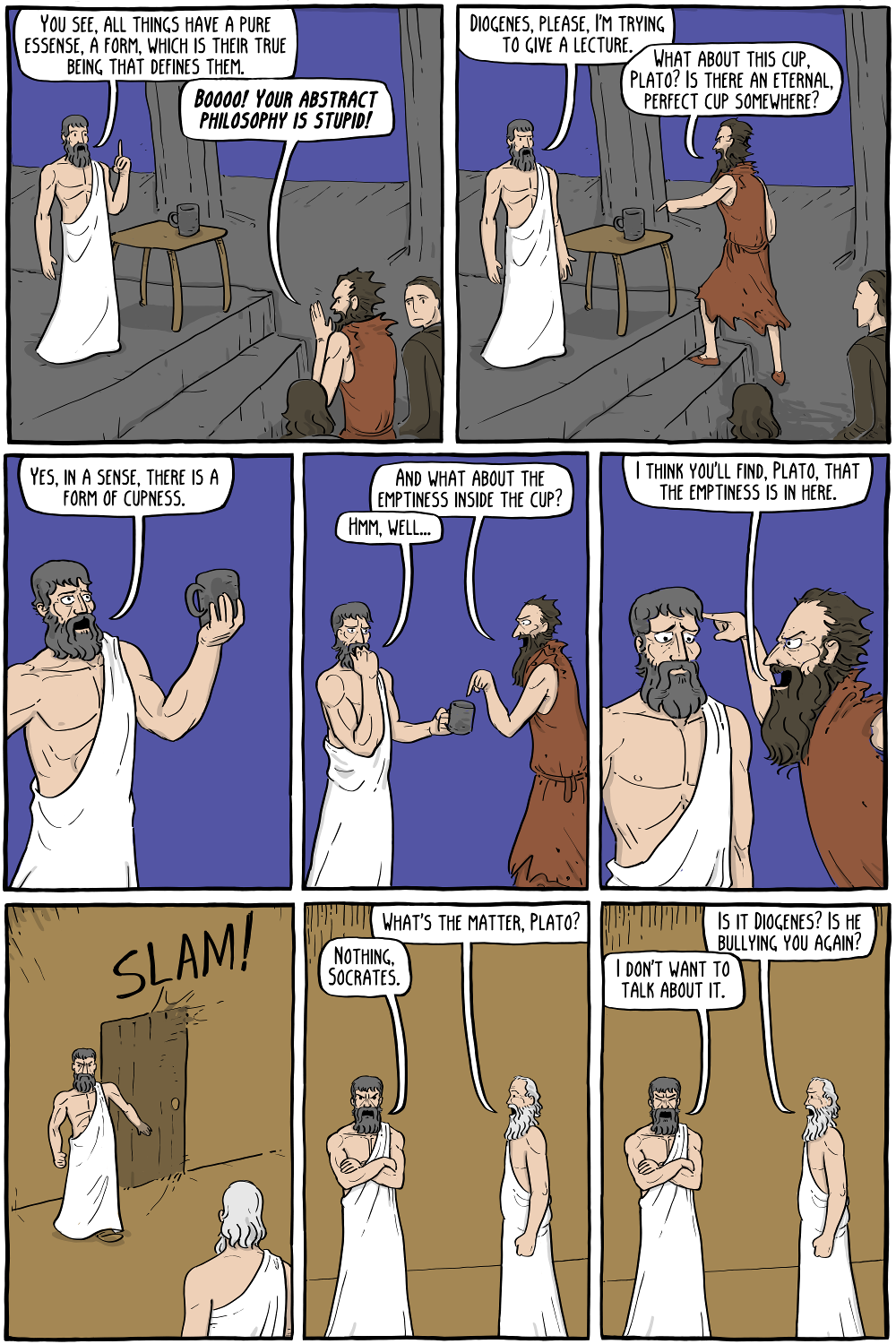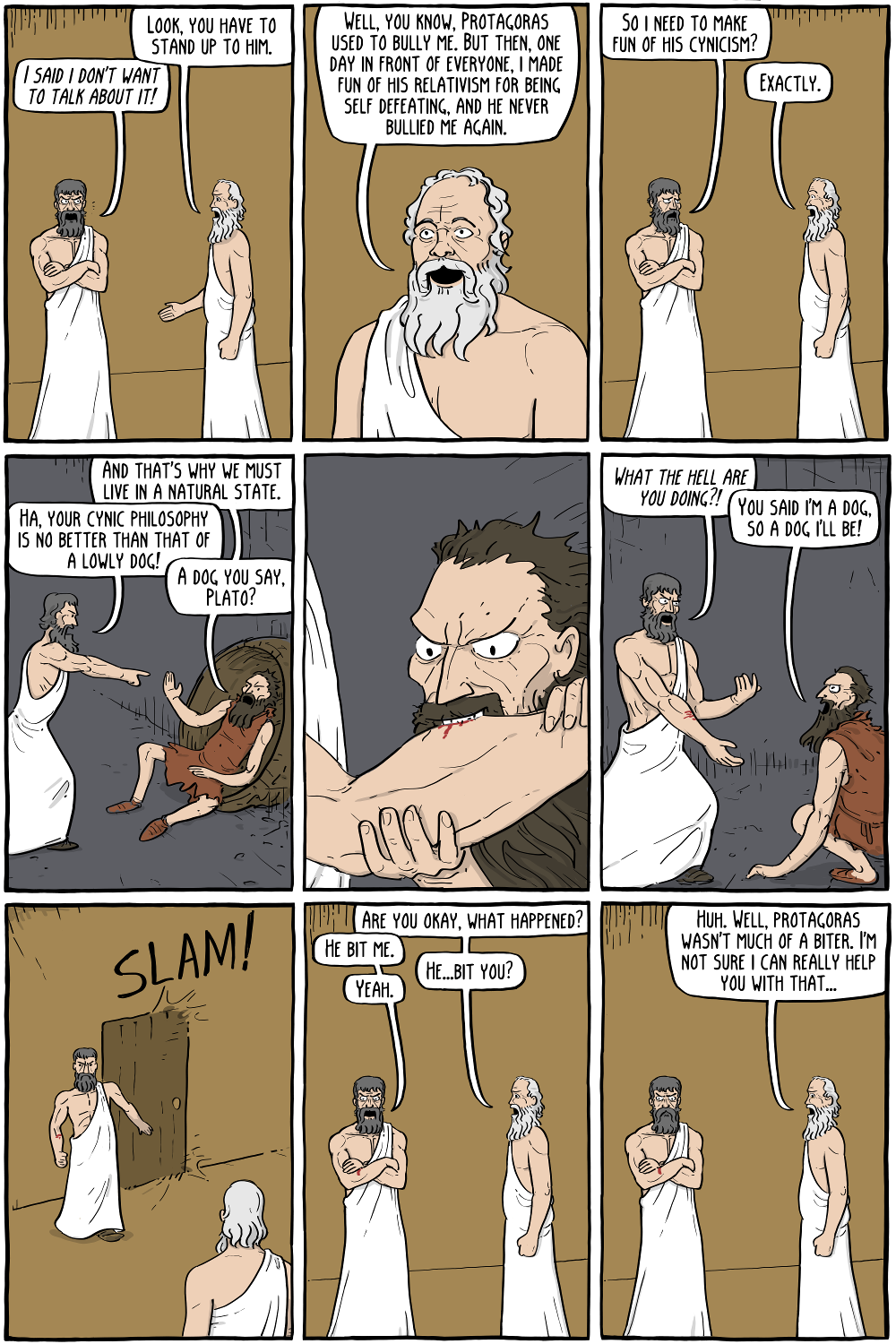

Diogenes and Plato had several run-ins, which have sort of been passed down through the ages (so who knows how much of it is real). Diogenes usually got the better of him. Examples include:
Plato was discoursing on his theory of ideas and, pointing to the cups on the table before him, said while there are many cups in the world, there is only one 'idea' of a cup, and this cupness precedes the existence of all particular cups. "I can see the cups on the table," said Diogenes, "but I can't see the 'cupness'".
"That's because you have the eyes to see the cup," said Plato, "but", tapping his head with his forefinger, "you don't have the intellect with which to comprehend 'cupness'."
Diogenes walked up to the table, examined a cup and, looking inside, asked, "Is it empty?" Plato nodded. "Where is the 'emptiness' which precedes this empty cup?" asked Diogenes. Plato allowed himself a few moments to collect his thoughts, but Diogenes reached over and, tapping Plato's head with his finger, said "I think you will find here is the 'emptiness'".
and
When Plato gave Socrates's definition of man as "featherless bipeds" and was much praised for the definition, Diogenes plucked a chicken and brought it into Plato's Academy, saying, "Behold! I've brought you a man." After this incident, "with broad flat nails" was added to Plato's definition.
and
Diogenes was knee deep in a stream washing vegetables. Coming up to him, Plato said, "My good Diogenes, if you knew how to pay court to Dionysius, you wouldn't have to wash vegetables." "And," replied Diogenes, "If you knew how to wash vegetables, you wouldn't have to pay court to Dionysius."
But not always:
When invited to the house of Plato, he trampled upon his carpet, saying that he thereby trampled on the vanity of Plato, to which Plato retorted "How much pride you expose to view, Diogenes, by seeming not to be proud."
Diogenes claimed to have gotten his morality from a dog, and would supposedly really bite at people's ankles. He said:
The dog is honest; he is not impressed by grand words, fancy clothes, or titles. He is loyal to those who are good to him; he bites those who ill-treat him or his friends, and he's not embarrassed to do what he does to live.
Permanent Link to this Comic: https://existentialcomics.com/comic/219
Support the comic on Patreon!










